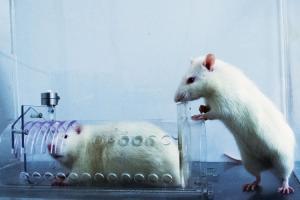
A decade after scientists discovered that lab rats will rescue a fellow rat in distress, but not a rat they consider an outsider, new UC Berkeley research pinpoints the brain regions that drive rats to prioritize their nearest and dearest in times of crisis. It also suggests humans may share the same neural bias.
“We have found that the group identity of the distressed rat dramatically influences the neural response and decision to help, revealing the biological mechanism of ingroup bias,” said study senior author Daniela Kaufer, a professor of neuroscience and integrative biology at UC Berkeley.